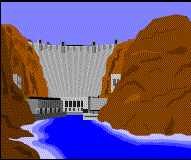climate change and effect on the world
Friday, December 10, 2010
climate change and effect on the world: http://www.youtube.com/watch?v=ntOjGVRimPc&feature...
climate change and effect on the world: http://www.youtube.com/watch?v=ntOjGVRimPc&feature...: "http://www.youtube.com/watch?v=ntOjGVRimPc&feature=channel"
GLOBAL WARMING
- What is Global Climate Change?
Greenhouse gases keep
our planet warm. They
exist naturally in the
atmosphere, heating it
by trapping energy that
has originally come from
the Sun. This process is
called the greenhouse
effect. Without the
greenhouse gases the surface of the Earth would be as
cold as the surface of the Moon (about -18 degrees
Celsius or °C). In fact the typical surface temperature
of the Earth is about 15°C.
Changing Temperatures
Measurements taken from all over the world, however,
have shown that the global climate is changing. In the
last 100 years the atmosphere has warmed up by about
half a degree Celsius.
Also during this time humans have been emitting extra
greenhouse gases, which are the result of burning fossil
fuels (like coal, oil and gas). These gases include carbon
dioxide, methane and nitrous oxide.
Greenhouse Gases
It is thought that the man-made emissions of
greenhouse gases, from the increased use of fossil
fuels, are responsible for some of the warming of the
global climate during the 20th century. The extra
greenhouse gases in the atmosphere trap more energy
and therefore enhance the greenhouse effect. This may
cause more warming. Greenhouse gases are also released
by the exhausts of motor vehicles. The cutting down of
ACE Information Programme aric
rain forests also releases carbon dioxide, which is a
greenhouse gas and causes global warming.
Natural Changes
There are also natural ways in
which the climate can be altered.
Volcanoes release gases, which
mix with water vapour in the air
to make aerosols, and cool the
atmosphere. Changes in the Sun's energy and the
circulation of the ocean also affect climate.
The Future
If the Earth continues to warm as climate models have
predicted, the temperature at the Earth's surface may
be 3°C warmer by 2100 than it is today. This rapid
change in temperature would be harmful to many
ecosystems, and many species of plants and animals.
ACE Information Programme aric
The Effects of Global Warming ON SEA LEVEL :
Warmer Seas and Melting Ice
When the Earth warms, the oceans
increase in the level of the sea. This
process is thought to be responsible
for about a quarter of the sea level
rise recorded during the 20th century.
The melting of ice sheets in Greenland
ACE Information Programme aric
and Antarctica could be another major cause, although it
is not known what contribution this makes.
According to many studies, sea levels have been rising by
1-2 millimetres (mm) each year for the past 100 years.
Current predictions suggest that the sea level may rise
by half a metre in the next 100 years.
Flooding
Higher sea levels will threaten the low-lying coastal
areas of the world such as the Netherlands and
Bangladesh. Many important fisheries would become
threatened and coastal ecosystems damaged.
In Britain, East Anglia and the
Thames Estuary will be particularly at
risk from flooding as sea levels
increase.
Scientists agree that global warming will generally result
will be differences between countries. In winter it may
rain more, but in the summer, it may become dryer.
Water resources would generally benefit from wetter
winters but warmer summers with longer growing
seasons and increased water evaporation would put
greater pressure on them.
Changing Evaporation and Rainfall
Water is essential for
human life and development.
Much of the world's
agricultural, hydroelectric
power and water supplies
depend upon the water cycle.
The Effects of Global Warming on Water Resources:
Global warming will affect the water cycle, placing
stress on water resources.
In some areas of the world water evaporation may
increase by a greater amount than rainfall. This would
warming may mean that rainfall becomes concentrated
into large storms that could cause problems with
flooding.
Hydroelectric Power
Water is used for a number of different purposes that
will be affected by global warming. Rivers may become
prone to flooding or drought. Hydroelectric power
generation depends upon a high water flow to make
electricity. If flows decrease, less hydroelectric power
will be generated. The supply and demand for water to
homes and workplaces may also be affected if the levels
of reservoirs and aquifers decrease.
Looking after future water resources with care will
become increasingly important as global warming takes
place.
Subscribe to:
Posts (Atom)


